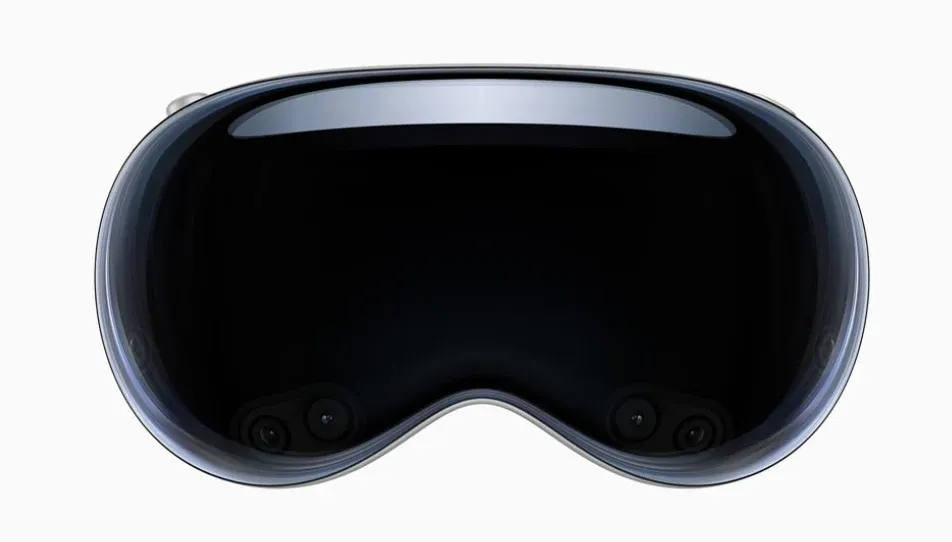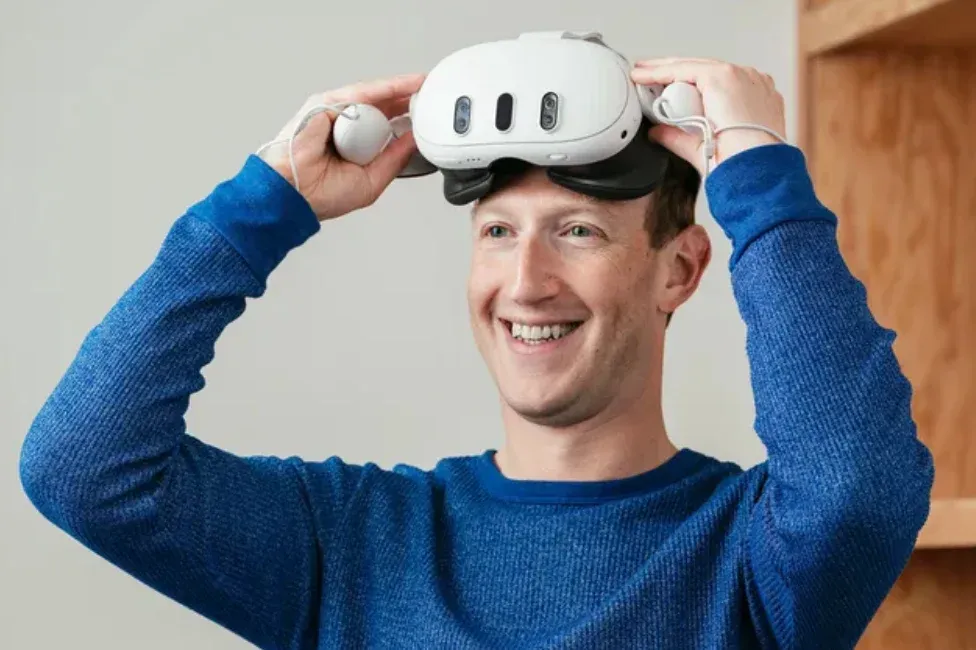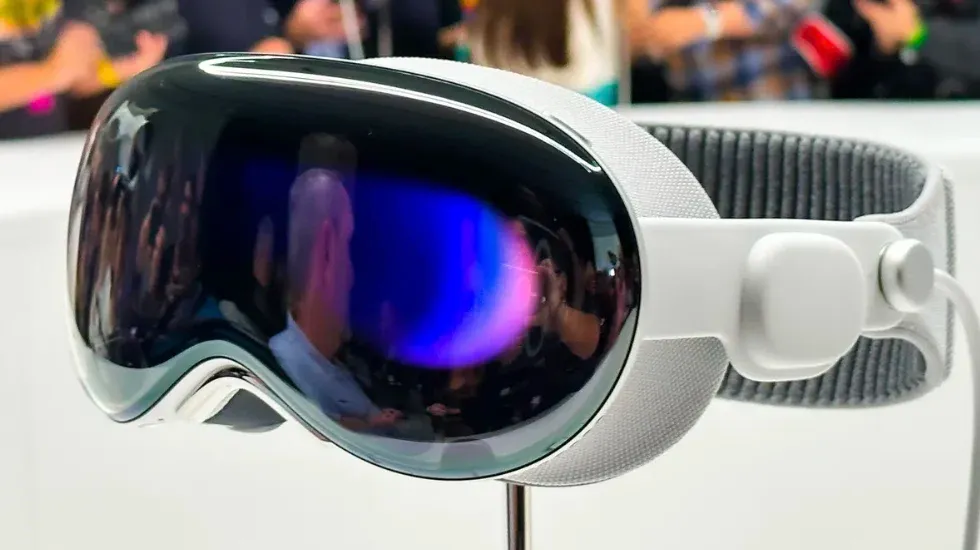
Dear Studio Fam,
This week's theme is clarity. Apple fans finally got clarity on Apple's vision for AR/VR and crypto fans finally got the clarity they'd been demanding of the SEC for so long. And Mark Zuckerberg got clarity on how his vision for the metaverse differs from Apple's approach to "spatial computing." Keep reading for a rundown of everything at the Vision Pro launch event, the top responses to the launch, and the latest lawsuits against the two biggest names left in crypto.
Apple Debuts Vision Pro at WWDC

In a decade defining keynote at its World Wide Developer Conference on Monday, Apple unveiled its first “spatial computing” device, the Vision Pro. At the end of a marathon presentation that also included new computers and major improvements to several key services for iOS, CEO Tim Cook invoked the storied “One More thing…” slide to introduce the world to Apple’s vision of the next generation of computing.
After nearly two hours of presentations detailing a larger Macbook Air, a more powerful series of professional Macs, and major enhancements to iOS, the introduction of the Vision Pro was a welcome relief to Apple watchers who for years have speculated what, if anything, Apple was going to do to evolve its ecosystem of tightly integrated hardware, software, and services into the metaverse. The answer is a nearly $4,000 headset powered by an external battery pack that seems designed as a productivity enhancer for power users more than as a mainstream consumer product.
While generating less fanfare than the Vision Pro, the new services announcements made earlier in the keynote presentation tell a different story about Apple’s business goals in the near future. New features coming to the Phone, Contacts, and Messaging apps will look familiar to anyone with experience with WeChat and likely signal upcoming integrations for businesses to make it easier to communicate with their customers through iOS devices.
The launch of a dedicated Journal app, direct integration of the Apple Health app to mental health service providers, and the enhancement of PDF handling are clear evidence of Apple’s desire to get more involved with its customers' healthcare. The fact that the Vision Pro supports prescription eyeglass lenses drives this point even further. Amazon's acquisition of primary care provider One Medical remains unmatched by Apple so there remains a lot outstanding for Apple to do.
Mark Zuckerberg Responds To Vision Pro

Shortly after the WWDC reveal of the Apple Vision Pro, Meta held its first in-person company all hands meeting since before the Pandemic. CEO Mark Zuckerberg discussed a number of issues from pending regulatory matters to the company’s return to office policy. But his comments on the Vision Pro dominated the discourse, according to several employees as reported by The Verge.
“From what I’ve seen initially, I’d say the good news is that there’s no kind of magical solutions that [Apple has] to any of the constraints on the laws of physics that our teams haven’t already explored and thought of. They went with a higher resolution display, and between that and all the technology they put in there to power it, it costs seven times more [than Quest 3] and now requires so much energy that now you need a battery and a wire attached to it to use it…. We innovate to make sure that our products are as accessible and affordable to everyone as possible….Our vision for the metaverse is fundamentally social. It’s about people interacting in new ways and feeling closer in new ways. By contrast, every demo they showed was a person sitting on a couch by themselves. That could be the vision of the future of computing, but like, it’s not the one that I want.” -Mark Zuckerberg
Vision Pro First Impressions

While Apple has not yet allowed on camera reviews, several prominent tech people were allowed to briefly use the device at WWDC. Here’s a rundown of their first impressions:
- MKBHD (YouTuber): “Eye tracking is sick, magical, gestures are intuitive, the best passthrough I’ve ever seen, heavy, no haptics.”
- David Pogue (CBS): “Mind blowing and heavy.”
- Scott Stein (CNET): “Better than I was ready for, passthrough video quality is really, really good.”
- Nilay Patel (The Verge): “Happily using my iPhone with it on, highest-resolution VR display I have ever seen, no killer app.”
- Brian Tong (Blitz XL Podcast): “Clarity and fidelity is unlike anything I’ve seen before, movie watching is like in a theater, a little heavy on the face, you feel the weight.”
Crypto Industry Finally Gets Clarity, SEC Sues Coinbase & Binance

In a series of moves that should surprise nobody, the SEC filed suit this week against crypto exchange platforms Binance and Coinbase for myriad violations of US securities laws. In separate filings, the SEC alleged that Binance was engaged in an international money laundering scheme (similar to the charges pending against FTX and Sam Bankman-Fried), and that Coinbase was actively and intentionally engaged in the brokering of unregistered securities.
The charges against Binance are more serious and numerous than those filed against Coinbase. The SEC alleges that Binance not only markets unregistered securities, but that it also engaged in wash trading and transfers its customers’ deposits to a hedge fund directly under the control of Binance CEO Changpeng Zhao. Wash trading is the creation of fake trading volume on an exchange to give the appearance of a robust market with high liquidity; in reality the trades are conducted between dummy accounts controlled by Binance. According to the SEC complaint, as much as 90% of trading activity on Binance was fake and billions of dollars of customer money was transferred to a hedge fund to fund speculative trades without the permission of the customers.
The Coinbase suit does not allege specific fraud but focuses on the availability of several crypto securities that were never registered with the SEC such as Solana and Cardano. Additionally, the suit alleges that Coinbase has failed its fiduciary duty to its clients by commingling the traditionally separate trading functions of brokerage, exchange, and clearinghouse. The division of these functions ensures that a customer’s buy and sell orders are executed at the best available price, that all parties involved in the transaction are known to each other, and that the seller actually has the security to sell and that the buyer actually has the money to buy.
Coinbase responded to the suit by opening a History of Money Museum in New York City and amplifying criticism of the SEC by Congressman Ritchie Torres (D-NY), despite the congressman’s history of accepting over $30,000 of donations from FTX.

